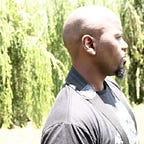Dare Mighty Things
“Dare and the world always yields; or if it beats you sometimes, dare it again and it will succumb.” — William Thackeray
An amazing stand of courage was displayed during the Greco-Persian War. Ten years had passed since Darius’ humiliating defeat in the Battle of Marathon. His son, Xerxes was now king of Persia and he wished to take revenge on the Greeks, especially on the Athenians and the Spartans. His goal was to extend his empire as far as the Greek mainland and beyond, “as far as God’s heaven reaches,” he said.
Xerxes gazed for a long time at the large army and the ships that had assembled before him and was moved to tears, he said to his uncle who was next to him :
“I am moved to pity when I think of the brevity of human life, seeing that of all this host of men not one will be alive in a hundred years time.”
He had assembled an army of 300,000 soldiers.
It is an interesting note that Xerxes, although portrayed as a god king in 300, was actually a benevolent king. He allowed the practice of all religions in his empire and oversaw a period of great prosperity during his reign. He married Ruth, of the old testament, who softened his heart towards the Jews, and allowed them to begin the exodus from their captivity in Babylon and return to Israel.
During this this time, however, the young Xerxes was at war, expanding the Persian empire. When they began to advance for Greece, a spartan scout, ran back to the Greek camp with the report:
“Our enemies are before us.”
“And we are before them,” was the cool reply from Leonidas.
“Deliver your arms,” followed a message from Xerxes.
“Come and get them,” was the response from Leonidas.
“You will not be able to see the sun for flying javelins and arrows!” replied Xerxes' commander.
“Then we’ll fight in the shade!” shouted a Lacedaemonian.
The battle ensued, and steel met steel, the 7000 Greek stronghold held the 300,000 Persian assault back for 7 days, fighting valiantly and killing off well over 20,000 Persian soldiers.
The Spartans, according to Herodotus, obeyed a supreme law: “Never flee, stand in place and fight, winning or dying in the attempt.” On the final day, during their last stand, Leonidas said to an unnamed man, “Go and tell the Spartans, stranger, that here, obedient to their laws, we lie.”
It was called a beautiful death, and their death was a sacrifice that was worthy and noble and well fought. They had bought time for many of their loved ones to escape and find refuge in the neighboring islands.
For the Persians, the loss of 20,000 soldiers was a minor inconvenience. The expedition shouldn’t have taken that long and it had already been plagued with issues beforehand, but no matter, the campaign was ultimately a success. Xerxes was quite pleased with himself, entering the city triumphantly and razing it to the ground.
Inscribed on a tablet at Persopolis were the words;
“I am Xerxes, Great King, King of Kings, the King of all countries, which speak all kinds of languages, the King of the entire far-reaching earth.”
The bulk of the 7000 soldiers who joined Leonidas were men from all over Greece, and did not necessarily share the values of the Spartans. They must, like most other men in their time, have valued a long and prosperous life. When they saw the army of the Persians, one can Imagine a necessary dialog Leonidas had with them in order to raise their spirits:
“Did you not call this a glorious expedition? Wherefore was it glorious? Not because the way was smooth and placid… but because it was full of danger and terror; because at every new incident your fortitude was to be called forth and your courage exhibited; because danger and death surrounded it, and these you were to brave and overcome. For this was it glorious, for this was it an honorable undertaking.
You were hereafter to be hailed as the benefactors of your species; your names adored as belonging to brave men who encountered death for honor and the benefit of mankind. And now, behold, with the first imagination of danger, or, if you will, the first mighty and terrific trial of your courage, you shrink away, and are content to be handed down as men who had not strength enough to endure cold and peril.
Oh! Be men, or be more than men. Be steady to your purposes and firm as a rock. Do not return to your families with the stigma of disgrace marked on your brows. Return as heroes who have fought and conquered, and who know not what it is to turn their backs on the foe.”
― Mary Shelley
Read more in my new book! The Trials And Triumphs of Hyperachievers
